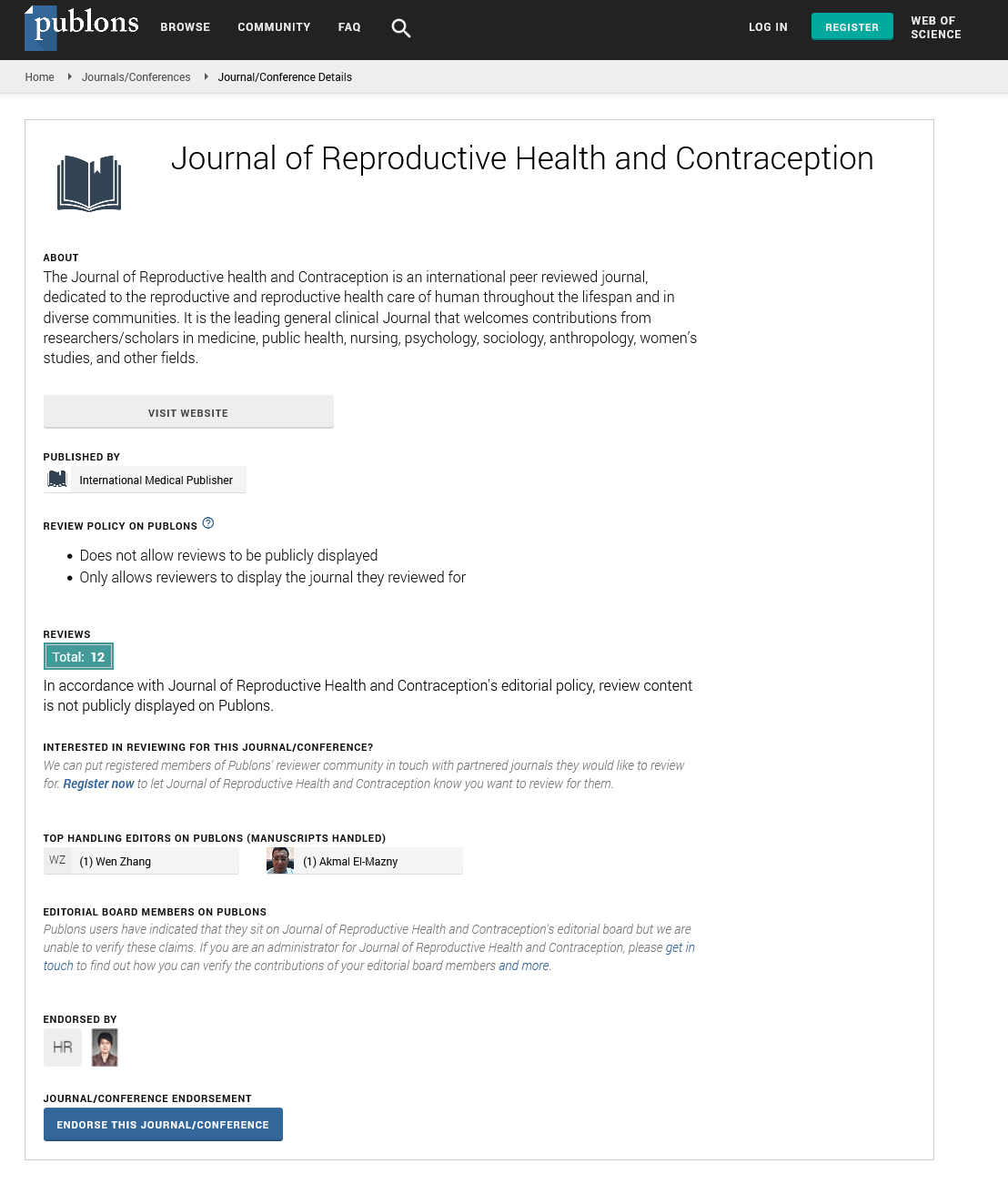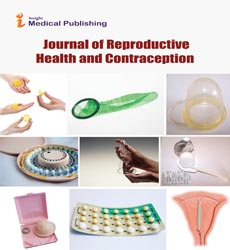Abstract
Knowledge and Behavior of Tunisian Men Regarding the Couple's Contraception: Clinical Trial
Objective: To assess the knowledge and the circumstances and sources from which men in Tunisia gain knowledge about contraception and their subsequent perceptions of different contraceptive methods.
Methods: A cross-sectional study conducted from January 2021 to December 2021, using a self-administered questionnaire. Tunisian men between 20-55 years were included. We examined participant profile, major sources of knowledge about contraception, perceptions of contraceptive side effects among Tunisian men and the factors influencing the level of knowledge of contraception.
Results: 122 men were questioned. The participants’ mean age was 31.3+/-8.7 years (range 20-57). 65.6% of our participants had a tertiary education. For 70.5% of our respondents the contraception was a shared responsibility within the couple. These participants had a higher level of knowledge about contraception compared to those considering it a woman’s domain (p=0.042). Knowledge of contraception increased with higher level of education (P<0.001). The condom was used by 96% of our respondents. 57.4% refused to use withdrawal as a mean of contraception. 44.3% of the participants had limited knowledge, about emergency contraception illustrated by the lack of awareness. 50% had false belief about the contraception and its interference to sexual life. Theinternet was main source of information and doctors were the most trusted source.
Conclusion: Measures must be taken to remedy to the noted lack of knowledge and false belief through the use of the internet and the healthcare providers as means to achieve this purpose.
Author(s): Chelly Cyrine, Bouchahda Rim, Ben Ali Yasmine*, Dahleb Rihab and Boughizane Sassi
Abstract | Full-Text | PDF
Share this

Google scholar citation report
Citations : 201
Journal of Reproductive Health and Contraception received 201 citations as per google scholar report
Journal of Reproductive Health and Contraception peer review process verified at publons
Abstracted/Indexed in
- Google Scholar
- China National Knowledge Infrastructure (CNKI)
- WorldCat
- Publons
Open Access Journals
- Aquaculture & Veterinary Science
- Chemistry & Chemical Sciences
- Clinical Sciences
- Engineering
- General Science
- Genetics & Molecular Biology
- Health Care & Nursing
- Immunology & Microbiology
- Materials Science
- Mathematics & Physics
- Medical Sciences
- Neurology & Psychiatry
- Oncology & Cancer Science
- Pharmaceutical Sciences


